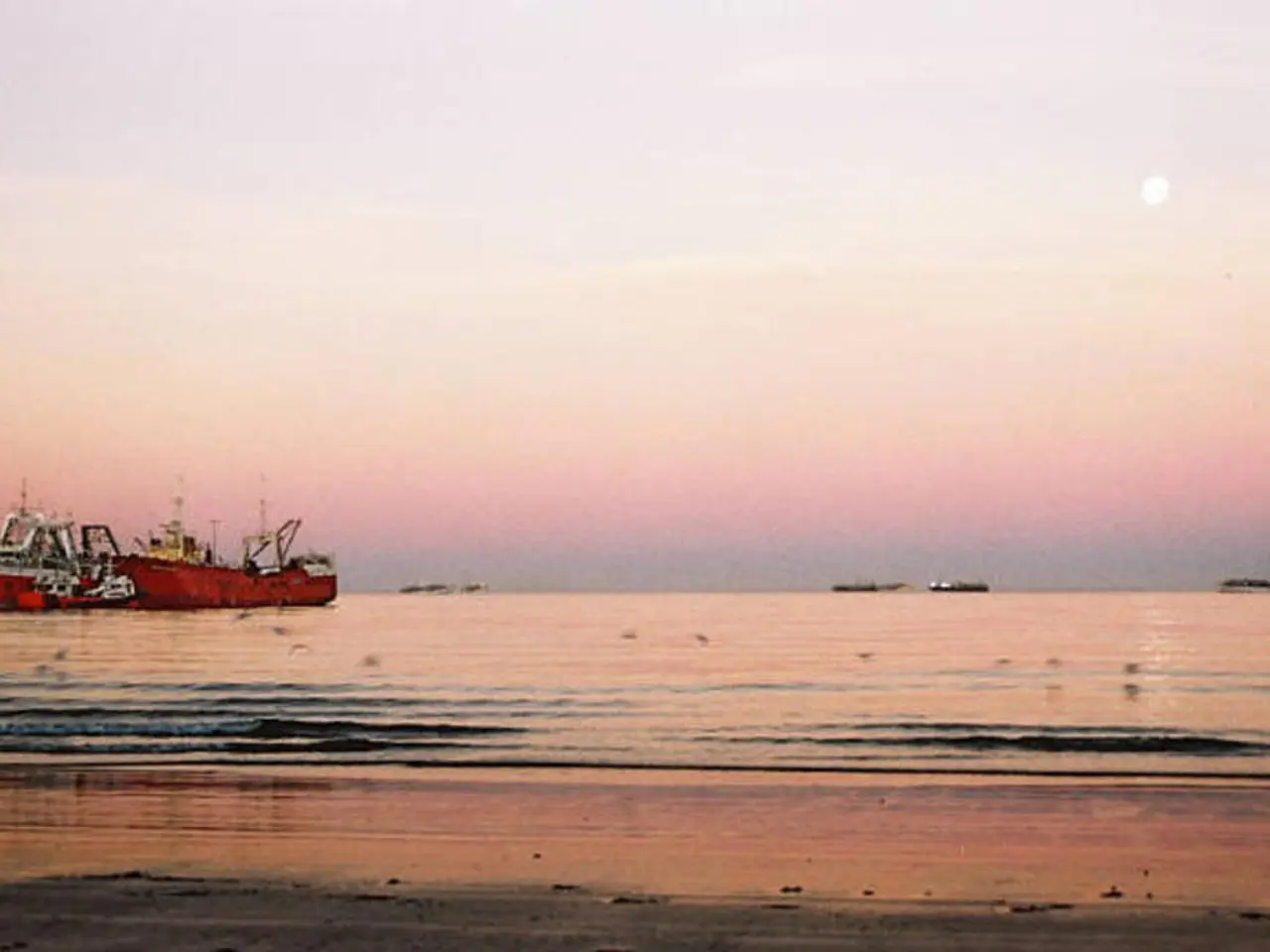Malta stands as a significant ally for Estonia, as affirmed by the Minister.
In a significant meeting held in Tallinn, Estonia, the Estonian Foreign Minister, Margus Tsahkna, met with Malta's Minister for Foreign Affairs and Tourism, Ian Borg. The discussions focused on Russia's aggression in Ukraine, geopolitical challenges in Europe, and cooperation between the two countries[1].
Regarding Russia's aggression in Ukraine, both ministers emphasized the need for continued comprehensive support for Ukraine and the establishment of legal mechanisms to hold Russia accountable for violations of international law[1]. Tsahkna highlighted the Council of Europe's June 2025 founding documents for a special tribunal on the crime of aggression, approved during Malta’s presidency, as a landmark for international justice[1][2].
Concerning the security situation in the Baltic Sea, the ministers discussed increased activity of Russia's so-called "shadow fleet," which threatens environmental and regional security[1]. Tsahkna underlined the importance of strengthened cooperation among Baltic Sea nations and EU member states to limit Russia's oil transit revenues that fund its war efforts[1][2]. This reflects a shared concern about maintaining stability and protecting coastal states in the region.
On tourism, cooperation is growing, supported by the fact that over 11,000 Estonian tourists visit Malta annually[1]. This foundation fosters closer ties in cultural and economic fields, with discussions aimed at strengthening tourism cooperation[1][2]. This bilateral engagement extends to broader economic cooperation and trade prospects as well[5].
In a statement, Tsahkna emphasized the importance of continued comprehensive support for Ukraine and the creation of mechanisms to hold Russia accountable for violations of international law[1]. He added that the revenues from Russia's oil transit fund Russia's war machine[3]. Tsahkna stated that it is extremely important to strengthen cooperation between the Baltic Sea countries and other EU member states to find solutions to limit Russia's oil transit[4].
The tribunal approved during Malta's presidency sends a clear message: no crime must go unpunished, according to Tsahkna[2]. He described the signing of the founding documents for the special tribunal on the crime of aggression at the Council of Europe in June as a significant step in establishing international justice[2].
Tsahkna wished his Maltese counterpart great success for the next stage of Malta's presidency, creating a strong foundation for closer cooperation in the fields of culture and the economy between Estonia and Malta[1].
References:
[1] Estonian Foreign Ministry. (n.d.). Press release: Estonian Foreign Minister Margus Tsahkna met with Malta's Minister for Foreign Affairs and Tourism, Ian Borg, in Tallinn. Retrieved from https://vm.ee/en/press-release-estonian-foreign-minister-margus-tsahkna-met-malta-s-minister-foreign-affairs-and-tourism-ian-borg-tallinn
[2] Council of Europe. (2025). Special Tribunal on the Crime of Aggression. Retrieved from https://www.coe.int/en/web/special-tribunal-on-the-crime-of-aggression
[3] BBC News. (2021). Russia's oil revenues fund its war machine, says Estonia. Retrieved from https://www.bbc.com/news/world-europe-57861509
[4] Estonian Foreign Ministry. (n.d.). Press release: Foreign Minister Tsahkna emphasizes the importance of strengthening cooperation in the Baltic Sea region. Retrieved from https://vm.ee/en/press-release-foreign-minister-tsahkna-emphasizes-importance-strengthening-cooperation-baltic-sea-region
[5] Estonian Ministry of Economic Affairs and Communications. (n.d.). Bilateral relations: Malta. Retrieved from https://www.mkm.ee/en/countries/malta
- The discussions between the Estonian and Maltese foreign ministers included the significance of policy-and-legislation to hold Russia accountable for violating international law in the context of war-and-conflicts, particularly in Ukraine.
- The important step towards international justice was identified by Estonian Foreign Minister Margus Tsahkna as the signing of the founding documents for a special tribunal on the crime of aggression during Malta's presidency of the Council of Europe.
- Strengthened cooperation among Baltic Sea nations and EU member states, along with general-news coverage and political debates, addressed the threat posed by increased activity of Russia's so-called "shadow fleet" to the environment and regional security.







